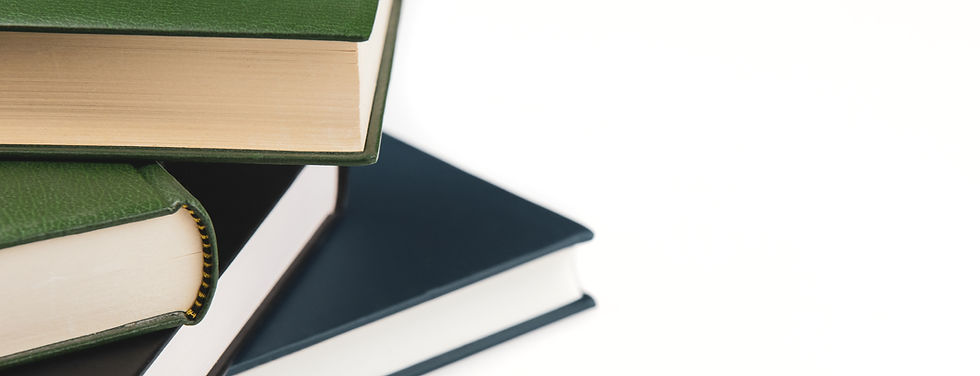Book Review of "Clutter: An Untidy History“…our vexed relationship with things…
- Dr. Cynthia Fischer

- Feb 9, 2021
- 4 min read
Book Review of Jennifer Howard’s Clutter: An Untidy History
“…our vexed relationship with things…”
As professional organizers, we are often met with blank stares when we tell people what we do. Either they have never heard of professional organizing, or they just don’t know that it is a real profession. We know all too well that it is a real profession, and one that is often quite sorely needed by desperate, overwhelmed clients. If someone has heard of professional organizing, they might ask us what objects “spark joy” for us—referring to international celebrity organizer Marie Kondo whose narrow method famously poses just that question. Now, thanks to a new book written by Jennifer Howard called Clutter: An Untidy History (Belt Publishing, September 2020), we have a resource we can direct people to who simply don’t understand what we do, or why we are so needed in today’s culture.
Howard explains how she came to write this book through her own harrowing experience of cleaning out her mother’s overstuffed DC colonial. She did this as her mother’s dementia progressed, and she transitioned to an assisted living facility. It’s probably a familiar story to you, as Howard uncovered in her research on this fascinating yet frustrating topic. Every time she mentioned what she was going through, friends, coworkers, and just about everyone had a similar story to share. It made her wonder how we, as a society, had gotten to this point. She went all the way back to the Industrial Revolution and the Victorians, the first inklings of mass-consumption, to find out. Howard takes her readers with her on an intriguing journey as she investigates how our capitalist systems have, unfortunately, led us to the vicious cycle of “get, get rid of, repeat.” With the fact-finding of a journalist, the research of an academic, and the easy writing style of a novelist, she provides the kind of book you can read in one or two sittings, and one that makes you reconsider your own values and habits.
As a professional organizer, it is refreshing to read a topical work like this, but one that is not bursting with rules or methods on just how to get organized yourself. Most organizers know that there is no one perfect method that works for everyone. Through interviews with organizers, including our own Heather Cocozza, Howard examines the organizing trade, how it came to be, and the vital role it serves in the community. She acknowledges the way many organizers become confidants or de facto therapists to their clients because their relationship with their stuff is often quite intimate and complicated. She understands firsthand that it’s never as simple as just getting rid of it all. A junk-hauler she interviewed even admitted, relieved, how professional organizers do the “emotional heavy lifting” now that he and his company used to do when they arrived on the scene. We have to have a degree of emotional intelligence, tact, and empathy to fare well in this industry.
Much of the book deals with residential organizing because that is the experience most people (Howard among them) live through when a loved one downsizes or passes away. Heather Cocozza points out; however, the transition from organizing a home to organizing for an entire company is not so big of a leap. “I was already in people’s homes and their home offices using this best-practices system, so I didn’t have to rewrite anything… I just did the same thing I was doing, but could apply it at a larger scale.”
And, as Howard points out, often it is digital clutter at home or in the office now, weighing us down mentally and emotionally as much as the physical clutter. Whether it’s in the home, in the office, or digitally, Howard explains that professional organizers “not only set up a system but coach the client on how to set aside time to maintain it.”
Overall, the questions Howard poses are not easily answered but they are important, not just for those of us in the organizing and productivity industry. For example, who will answer for the “ecotastrophe” that clutter has created on our planet, in our landfills, in our oceans, and so on? In her final chapter, Howard states that when the junk-hauler takes the stuff away it’s like it doesn’t exist anymore—but it does still exist, and that’s a “larger reckoning,” as she calls it. As much as we try to offset the culture of consumption and junk, each individual on their own doesn’t make that much of a dent. Corporations and the very way society functions will have to change to make a positive impact on our planet. Maybe I’m biased, but it sounds a lot like Howard is saying we need some kind of global professional organizer (or an army of us!) to set up new systems and teach the world how to use and maintain them. Maybe then we can get off the hyper-speed carousel of consuming and discarding. Examining our own “vexed relationship with things,” as Howard puts it, is a worthy place to start.
by Dr. Cynthia Fischer





Comments